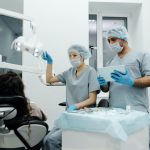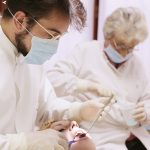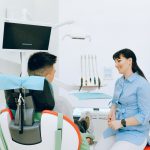45% of UK dentists feel their mental wellbeing is worse compared to the start of the pandemic, and nearly half (48%) say they feel pessimistic about the future, according to a survey.
In the Dental Protection survey of nearly 500 dental professionals, 60% said that concern for the health of their family and friends was the main factor affecting their mental wellbeing. 58% cited loss of income/financial worries, and half of the respondents (50%) said adapting to new policies and guidance – including restrictions on appointments – was having the most impact on their mental wellbeing.
A third (33%) of dentists also said they had experienced verbal or physical abuse from patients or patients’ relatives – largely due to not being able to offer an appointment soon enough. A further 5% said they had experienced verbal abuse outside of the surgery.
A number of dentists commented on their experiences anonymously in the survey. One dentist said: “People are very angry in general, short tempered and impatient. They lack understanding of the protocols we have to follow. It is very draining.”
Another said: “I often receive verbal abuse in nearby shops from irate patients.”
A further dentist commented: “I am routinely verbally abused when unable to offer out of hours treatment to other practice patients who are still not open, or from patients not registered with any practice.”
Raj Rattan, Dental Director at Dental Protection, said: “Dental professionals have faced a range of challenges throughout this pandemic, and many have returned to practise in equally challenging circumstances – working in different ways, adapting to additional PPE, worrying about their health and that of their families, staff and patients, and facing a backlog of patients with outstanding treatment due to the unavoidable delays in recent months.
“Many dentists have also expressed their frustration about guidance which they believe is unsupported by a strong evidence base. In particular, they have commented that guidelines are not always easy to decipher and adhere to and are having an adverse impact on the operating capacity of the practices. The design, capacity and internal configurations have meant that some practices have been more impacted than others.
“Dentists continue to care for their patients and provide high quality treatment in these difficult times. However, many patients have had their care and treatment delayed and not all are equally understanding of the circumstances. We are starting to hear about patient complaints and as shown in our survey, some patients are expressing their anger more directly towards dentists and the team. Their zone of tolerance may of course be exacerbated if they are in pain or discomfort.
“Such delays frustrate and create stress for clinicians who may feel they cannot act in their patients’ best interests for reasons beyond their control. This presents yet another source of anxiety for dentists at a time when many have expressed concerns about their mental wellbeing.
“We want to reassure all members that Dental Protection is here to offer support. Throughout the pandemic, members have been calling us for our interpretation on guidance and advice on what they should and should not do. Our teams have been responsive to the challenges, demonstrating thought leadership and agility to ensure that we do our very best to help.
“I would also encourage members experiencing work-related stress to make use of our free counselling service. The service is provided through a third-party partner and is completely confidential. We also have a range of wellbeing resources available including apps, podcasts and webinars at www.dentalprotection.org/uk/wellbeing.”
The survey was conducted by Dental Protection. It ran from 28 September – 19 October and achieved 497 responses from dental members in the UK.
Top 10 factors that UK dentists say are impacting on their mental wellbeing.
- 60% – Concern for the health of my family and friends
- 58% – Loss of income/financial worries
- 50% – Adapting to new ways of working (e.g. new policies, guidance, restrictions, wearing PPE etc.)
- 47% – Fear of further waves of Covid-19
- 47% – Backlog of work (referrals etc.)
- 44% – Concern for the health of patients
- 41% – Concern for own health
- 40% – Fear of investigations or claims arising from difficult decisions made during Covid-19, or disruption to care
- 34% – Low morale at work
- 33% – Adhering to social distancing and other Covid-19 safety measures














